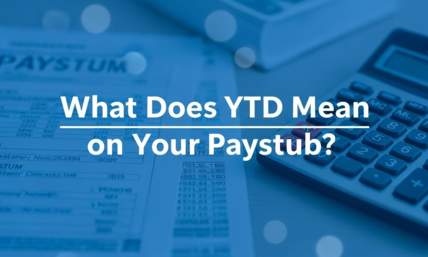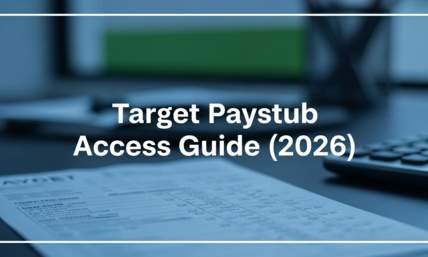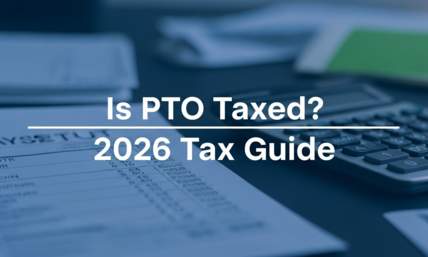What is Comp Time? - and How to Use It
Comp time is short for compensatory time, but what is it? Comp time is when you give your employees paid time off instead of giving them overtime pay for working over forty hours in a week.
The best way to calculate comp time is to use this formula: Multiply 1.5 by the number of overtime hours your employee has worked. By calculating these, you’ll be able to figure out the amount of compensatory time you can give your employees.
You may wonder if you can give comp time to all types of employees, but this isn’t the case. Depending on your business and employee’s status, you can provide compensatory time in specific situations. You also need to consider your state laws. How can you utilize comp time in your business?
Also read: 7 Employee Benefits and Compensation Ideas

Comp Time in the Private and Public Sectors
Compensatory time is much more common for those working in the public sector. All levels of government, from federal to state to local agencies, can offer comp time to employees instead of overtime pay. While government employees may receive comp time, it isn’t permitted in the private sector, especially non-exempt employees.
When public agencies offer compensatory time, you need to consider the strict rules they have in place. For example, you need to negotiate any comp time with your employees before working their overtime hours. You will also need to calculate the rate for comp time, so you need to figure this as overtime, so you need to calculate it by multiplying their actual working hours by 1.5. Your employee does need to use their accrued compensatory time within fixed pay periods, and you should ideally have a labor union agreement that covers comp time.
There is a restriction to the number of comp time hours that public sector employees can accrue. Most workers have a limit of 240 hours, while emergency services, such as emergency response, law enforcement, and fire protection, can have double this number of accrued comp time.
States have different laws about wage and overtime pay, so you may find they can contradict federal laws. Some states allow comp time in businesses in the private sector if the Fair Labor Standards Act does not cover their industry. While this can be confusing, you must opt in for any stipulations that provide the best protection to your employees. When working in the private sector, you should look into both federal and state laws to better understand overtime laws and labor union contracts.
Also read: 8 Great Virtual Retirement Party Ideas
What is the Difference Between Exempt and Non-Exempt Employees?
As mentioned, comp time works differently for exempt and non-exempt employees. The Fair Labor Standards Act covers non-exempt employees, so you must pay at least minimum wage for their work hours. You also need to provide overtime pay multiplied by 1.5 if they work over forty hours a week. Non-exempt employees are hourly workers.
Exempt employees are usually salaried workers. They are exempt from the Fair Labor Standards Act’s requirements for overtime pay and minimum wage. So while you are not required to pay exempt employees for overtime, employers may choose to pay them voluntarily and offer them compensatory time instead. But keep in mind that if an exempt employee decides to leave their position before using any accrued comp time, it’s not a legal requirement to pay their unused comp time.
To better understand the differences between exempt and non-exempt employees, you should consult the Fair Labor Standards Act to know how they define them. There are exemptions to all rules, so you should know what businesses the Fair Labor Standards Act covers and how it covers them.
Also read: 7 Thoughtful Farewell Gifts for Coworkers

Is Compensatory Time Legal?
Compensatory time is legal, but it does depend on various factors, as it is regulated at the state level. The Fair Labor Standards Act also sets boundaries for using comp time instead of overtime. If you use compensatory time, you should keep these factors in mind.
Is your employee classed as exempt or non-exempt under the Fair Labor Standards Act, and what type of business are they employed in? Is it a role in the private or public sector? You also need to remember what state you have employed them in. As I mentioned, it is regulated at the state level.
Also read: Use A Customised Invoice For Your Business
What Happens if You Use Comp Time Illegally?
The United States Department of Labor can issue some penalties if you use compensatory time illegally. You should always be aware of the state and federal laws regarding comp time, even if your employees may push for it. The United States Department of Labor oversees issues with overtime pay and comp time, so they can enforce penalties on you if you ever breach laws regarding these.
You can get fines of up to $10,000 for violations in comp time, and you can get more penalties for any repeat violations. Violating comp time laws too many times may even lead to imprisonment. You can also have lawsuits brought against you. If these lawsuits are successful, you’ll have to pay twice as much of any owed wages and any legal fees. You may also have fines for penalizing employees who file comp time claims for unpaid wages.
It’s always better to be aware of the laws surrounding compensatory time so you can protect both your employees and your business.
Why Should You Use Comp Time Instead of Overtime Pay?
If you’re considering using comp time policies, you can avoid overtime premiums. There are also opportunities for your employees to take time off without worrying about their paychecks. When you utilize comp time successfully, your employees can better understand when they can have comp time by using a transparent comp time policy.
There are benefits to employees choosing between comp time and overtime pay, so you should discuss it with them to ensure they have an informed decision. They should consider their financial position and if they need the money or if they would prefer time off. Do you have a preference yourself, and how will overtime impact your employee’s taxes? Ultimately, you should help them make an informed decision.
You should also be aware of any issues with offering comp time instead of overtime. Employees may dispute their exemption status and their expectations with you. If your employees expect comp time whenever they work overtime, they may put in more hours to get more days off. It is vital that you discuss their preference for comp time or overtime before they take up overtime and that you know the number of hours they have accrued.
Also read: 5 Ways To Keep Track Of Your Businesses Income And Expenses

Final Thoughts
Now that you’re aware of what comp time is, you may be wondering if you should utilize it in your business. But you should always make sure you know when you can use it. There are laws in place that protect both you and your employees, so you should remember this before you make any final decisions on whether you should offer it or not.
You should know if your employees are exempt or not by understanding the differences in the Fair Labor Standards Act. Ensure you do your research, as exemptions are not always as black and white as I have described in this article. You should also know if you’re managing a public or private sector business. Where is your company located? If you’re in a state that allows comp time for private businesses that the Fair Labor Standards Act doesn’t cover, make sure you know everything about the state laws regarding comp time.
If you are legally allowed to use comp time, make sure that you are always transparent with your employees and set any rules for using it in your workplace. Understanding how you can use comp time in your business can lead to a better work-life balance for your employees if you can use it.
If you haven't got the most efficient way to produce paystubs for your employees, check out the pay stub maker today. So easy and convenient!















